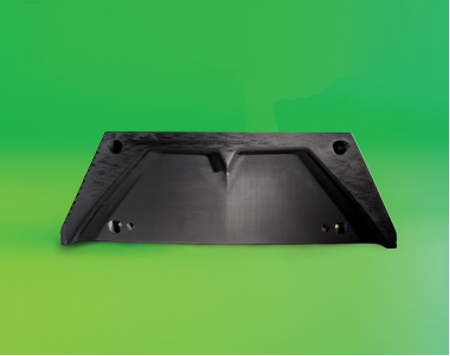Royal DSM, a global science-based company in Nutrition, Health and Sustainable Living, today announced the introduction of EcoPaXX® AM4001 GF (G), a high performance material for fused granulate fabrication or 3D pellet printing. This 3D printing optimized version of the EcoPaXX® material used in end-use parts, is a fit-for-purpose material that delivers on performance and sustainability.
Producing automotive tooling and structural parts using additive manufacturing makes geometry or internal structure changes easier and shortens production time, as it eliminates steps in the production process. Similarly, costs are reduced throughout the entire product lifecycle, from component production and assembly, to vehicle testing and low volume vehicle production. By using sustainable polymers for metal replacement, car manufacturers can meet two sustainability goals at once: lower emissions standards by building lightweight cars and reduce their manufacturing carbon footprint.
EcoPaXX® AM4001 GF (G), a polyamide PA410, combines all the features needed for additively manufacturing automotive tooling and structural parts with pellet printing or fused granulate fabrication (FGF), a technology for printing strong and stiff industrial parts fast and economically. The material has excellent thermal and mechanical properties with low moisture uptake, excellent chemical resistance and good surface properties as well as 42% bio-based content based on ISO 16620-1 2015(E). DSM’s proprietary PA410 technology in EcoPaXX® ensures lower moisture uptake than classical PA6/66 whilst being a sustainable, easy to print and post process, bio-based material.
Geoff Gardner, Innovations Director Additive Manufacturing at DSM: “EcoPaXX® AM4001 GF (G) is the first 3D printing material based on DSM’s established bio-based engineering material EcoPaXX®, an industry-leading engineering material used in traditional manufacturing for industrial applications. A combination of DSM’s proprietary technology and the power of nature’s building blocks derived from castor plants, the material is ideal for pellet printing automotive structural parts combining mechanical performance with a wide temperature range.”
www.dsm.com
